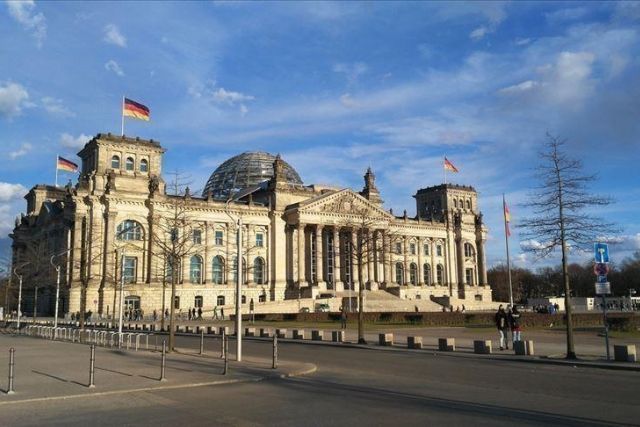UK's plan to stop migrants arriving in small boats is ‘starting to work,’ says British premier
Arrivals of irregular migrants reduced by 20% in first 5 months of this year, says Rishi Sunak

LONDON
The UK government's plan to stop migrants arriving in small boats is “starting to work” as crossings reduced by 20% in the first five months of this year, Prime Minister Rishi Sunak said on Monday.
During his visit to Kent, Sunak said that the decline in the UK coincided with an increase of irregular migration by 30% in the rest of Europe.
He said that thanks to an agreement with Albania, the UK repatriated 1,800 Albanian individuals to their home country, adding that the deal also helped reduce the number of Albanians attempting to cross the English Channel by 90%.
He said that by implementing stricter requirements, the UK has seen an increase in the refusal rate for individuals claiming to be victims of modern slavery, adding that “since we started asking for basic evidence to back up modern slavery claims, the refusal rate has tripled.”
To combat the issue of people smuggling, he said he has taken measures, including doubling the funding allocated to the National Crime Agency.
Sunak also revealed that the government has recently procured two new barges to serve as accommodations for asylum seekers.
He said that further details regarding this will be announced later. However, he emphasized reducing the reliance on hotels as temporary housing for asylum seekers.
The UK government's new plan to stop small boat migrants has been met with criticism from human rights organizations and refugee advocates who argue that it violates international law and the UK's obligations under the Refugee Convention.
The plan includes detaining the majority of those arriving on small boats for the first 28 days without bail or judicial review and preventing them from making claims to stop deportation until after they have been removed.
According to Amnesty International, the rights of migrants, refugees and asylum seekers are protected by international law regardless of how and why they arrive in a country.





